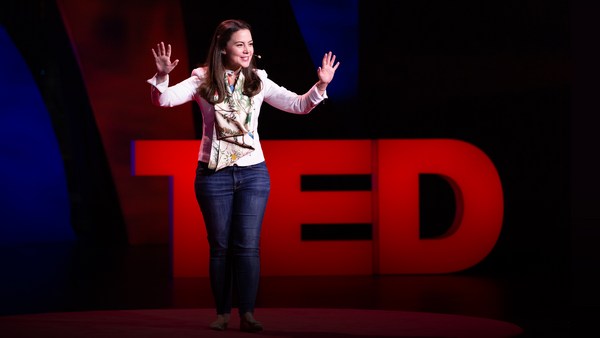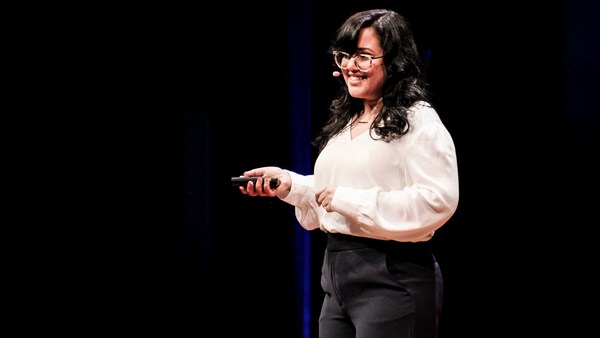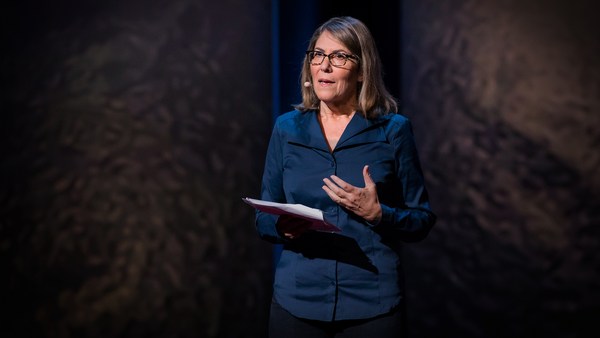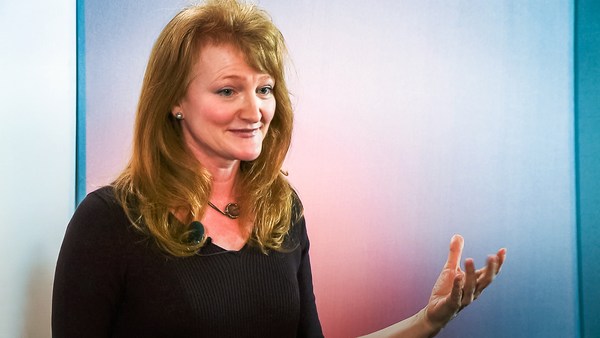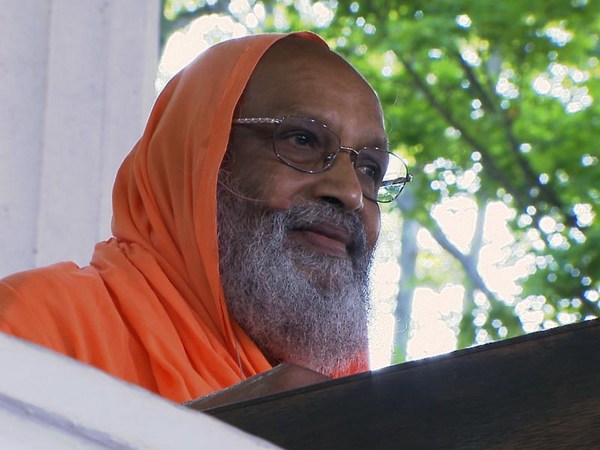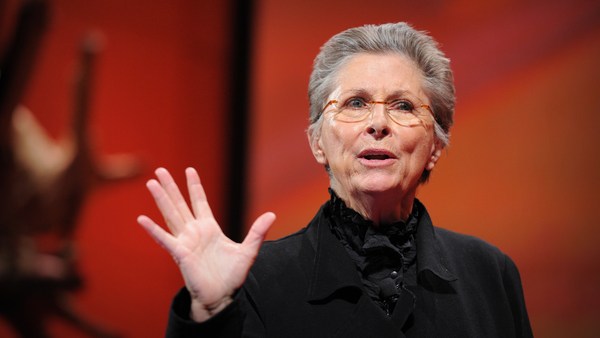I am unabashedly a daddy's girl. My daddy is the first person to have told me that I was beautiful. He often told me that he loved me, and he was one of my favorite people in the entire world, which was why it was really challenging to discover that we had a deep ideological divide that was so sincere and so deep that caused me to not talk to him for 10 years. Before the term was coined, I canceled my father.
In the last few years, cancel culture has of course come into great prominence. It's existed throughout time, but cancel culture in the bigger society is when a person in prominence says or does something that we, the people, disagree with, and the decision is made to make them persona non grata. They are done. They are not to be revered. They are not to be a part of our world anymore. And that is in the public realm. I'm going to talk to you today about the private realm. When we choose to cancel the people in our circle, the people in our core, the people who love us and who we love, and it has been mutually beneficial, but due to a deep and sincere ideological divide, we make the decision to cancel them out of our lives. I want to suggest that cancel culture needs to change, and instead we need to move to compassion culture.
But before I go there, let me tell you two of the premises that exist when we indulge in cancel culture. One, we have to believe that we're right. A hundred percent, no possibility of being wrong. And two, the other person, the person we're going to cancel, clearly does not have the ability to change, to grow, to develop.
Obviously, both of these are problematic because sometimes we're not right. I don't know about you, but there have been times in my life when I knew beyond a shadow of a doubt that I was right only to discover that I was wrong, badly wrong, completely missed the mark. So if it could happen to me and perhaps it's happened to you, perhaps it could happen to others.
The second is a little even more challenging because I know that I've changed over the years. Haven't we all? Though the core parts of Betty have pretty much stayed the same, there have been key elements that have changed drastically. The Betty of eight years old was not the same as the Betty of 18, which was not the same as 28, which was not the same as 38. I've changed. And if I'm able to change, shouldn't I extend grace to believe that others can change too?
So what should we do? Instead of canceling people, we should use the tool called compassion. I find the definition of compassion is a fascinating one. And it's not one that I hear people talk about. Compassion means to suffer with someone. To suffer alongside them. Imagine. When someone, say, Grandpa, says that thing that's caused you to decide he's no longer invited to Thanksgiving, what if instead we chose to suffer alongside him? We decided that our love was so big, so deep, so strong that we were willing to suffer, even when it could be potentially painful.
Now let's be clear. I am not denying anyone's right to cancel anyone else. What I'm suggesting is that maybe that's not the best way. When we think about the situation with Grandpa at Thanksgiving, if we choose to cancel him, we are no longer in proximity to him. Not only do we not get to hear his point of view, we don't get to share ours. What if we're the only person, because of our deep connection and love and affection for our grandfather -- and substitute anyone you choose. What if we're the ones to plant seeds of change, seeds of influence, seeds of difference. Now, to be fair, I cannot promise you that just because you plant the seed, that it will get water, that it'll get any sunlight or even a little fertilizer. But what I can tell you is that if you don't plant it, who will?
I find it interesting, this idea of suffering alongside someone. It means that we are choosing to value the totality of the person rather than one particular aspect, like a framework or a mindset or a belief system. We're choosing to believe that the entire person is more valuable than any of the individual parts.
And I found an amazing duo who demonstrated this beautifully. Perhaps you've heard of them. The late justices Ruth Bader Ginsburg and Antonin Scalia were close, close friends. And they were completely divided in terms of belief systems. In fact, Antonin Scalia once said, "What's not to like, other than her thoughts on the law." He believed she was wrong. She believed he was wrong. They did not shift in that point of view whatsoever. And yet they had tea together every week, and every New Year's Eve, they spent it together with their families. They went on family vacations together. They chose to suffer with each other rather than to cancel each other. Their love and respect for each other continued to grow, even though they never saw eye to eye.
I imagine that curiosity might be a part of that. That if we choose to be curious about that which is different, we might discover something along the way. After all, if we are who we are because of our lived experiences, isn't that true for someone else? And have we ever decided to use that tool of empathy, of walking a mile or so in someone else's shoes to really discover the context for why they believe what they believe?
Now, by now you're probably saying, "Yeah, OK, Betty, this sounds good. But what about you? What about you and your dad?" It's a fair question. After 10 years of not talking to my dad, I picked up the phone one day, called him and said, "I bet if it were up to you, you'd probably go back in time and change some things. I know I would. But since we can't, how about we start again?" And he said, "Yes, because I love you. I always have. And I always will." I am so grateful that I made that call because there was no way for me to know that a few years later my dad would develop Alzheimer's. And a few years after that he would die. And we never saw eye to eye about the thing that divided us, ever. But our love continued. It continued through those 10 years when we didn't speak and it continued in the six years after.
So I am encouraging us to become a society of people that choose compassion over canceling. I'm asking us to consider that curiosity might be a better practice. That we might choose empathy, that we might choose to have a love that is so deep, so wide, so strong that it can surpass differences. Why are we so scared of differences anyway? I also want us to be a people that plant seeds, seeds of change, seeds of influence, seeds of diversity. Again, I cannot promise to you or anyone else that planting that seed is going to make a difference. But what if it does? I am the sum of who I am because of everything that I've been exposed to. My mind has changed over the years and grown because of the people in my life who planted seeds in me, some that I saw and some that I didn't. So wouldn't it be great if instead of having a cancel culture we create a compassion culture where we are willing to suffer alongside the ones we love, because we love them. And can't we become a community that plants seeds? After all, if we don't, who will?
Thank you.
